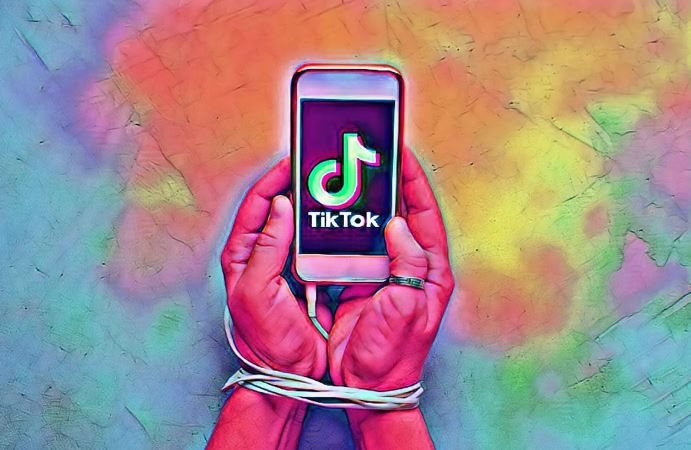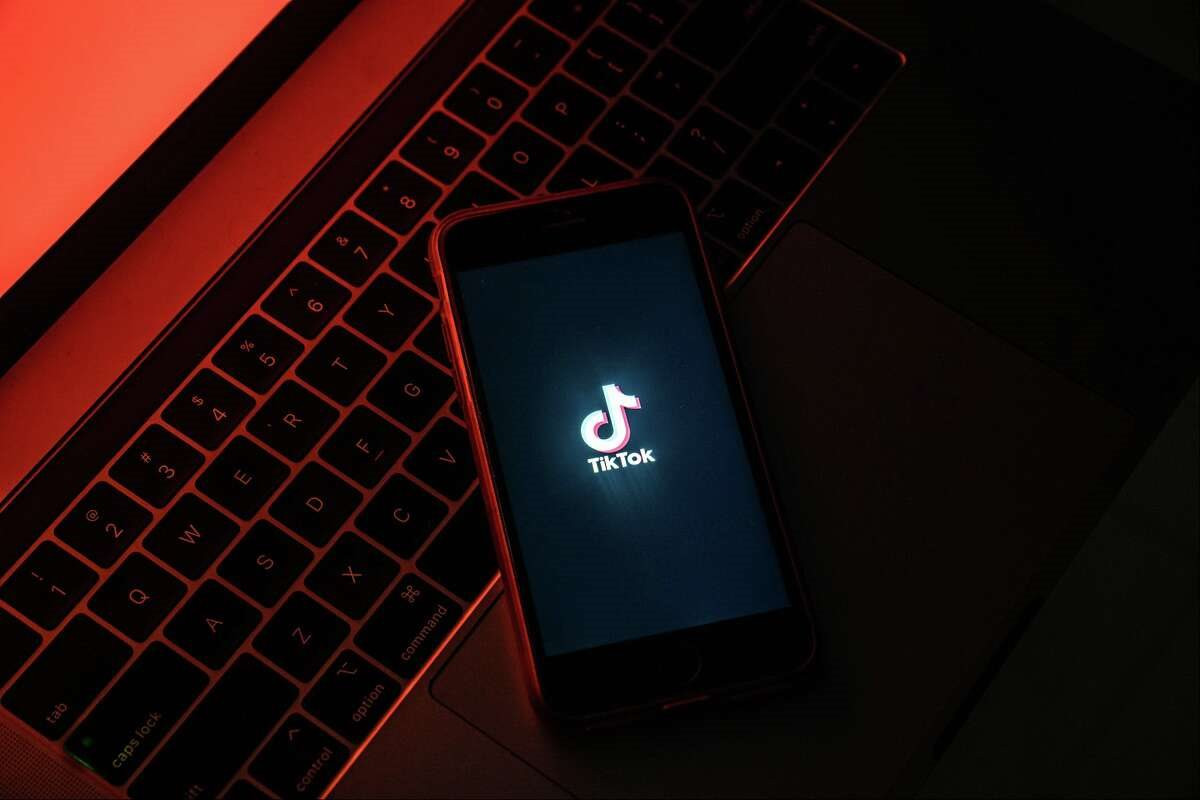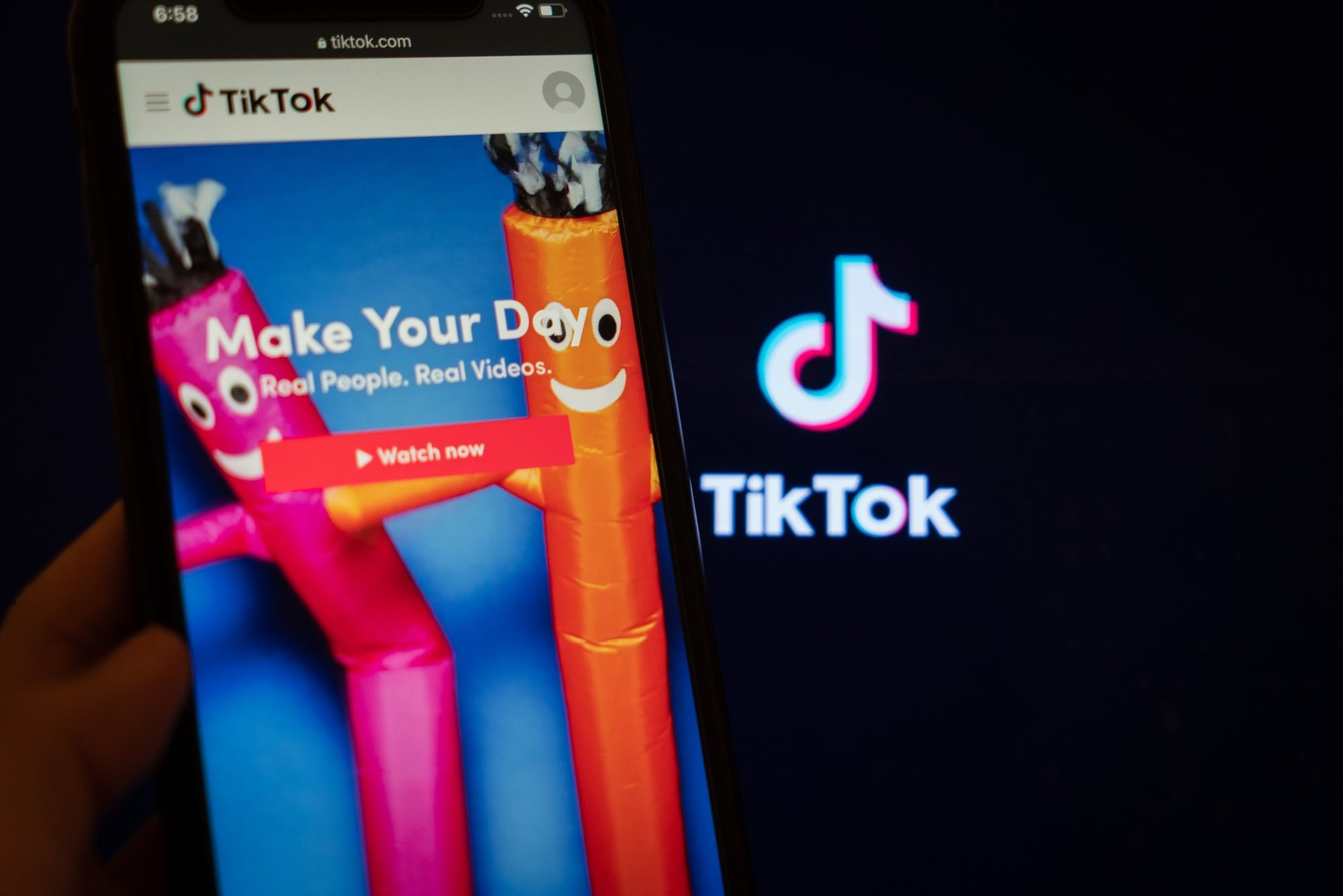A Chinese super app has been accused of manipulating users’ psychology, related to phone addiction
- Tram Ho
According to experts, there is evidence that viewing content from this ‘super weapon’ can cause mental illnesses.

TikTok is the most successful app in history. It emerged in 2017 from the Chinese video sharing app Douyin and just 3 years later became the most downloaded app in the world, even surpassing Google in terms of web domains visited.
The process of conquering users with “launchers” is idle time during the COVID-19 blockade, but this is not simply luck. TikTok’s algorithmic design makes it an app that users can hardly resist.
With TikTok, the recommendation algorithm is the core product. You don’t have to list your interests, the only thing you need to do is sit and watch the video, click like if you like or scroll through if you don’t like it. This action will be remembered by TikTok, thereby creating a habit of watching and adjusting the displayed content accordingly (sometimes through your facial expressions). TikTok videos are often much shorter than YouTube videos, so the crawling algorithm is also faster and more user-focused.
For You prioritizes trending and immediate content, so there are times when constructive videos are dropped from the list to make way for interesting “junk” information.
According to Bloomberg, such videos are harmless, but the algorithm doesn’t just show users a single piece of content. When it receives a signal of attraction, it will continue to repeat the same content over and over and make a mark in the viewer’s brain. Many harmful and misleading trends have spread strongly because of this.
According to experts, there is evidence that viewing such content can cause mass mental illness. The story of healthy young girls watching clips of people with Tourette’s disease suddenly developing similar symptoms is a prime example. Therefore, TikTok is being likened to a new type of super weapon that can affect human behavior and manipulate psychology just by clicking on links.
According to experts, the biggest danger of an app lies not in any particular content but in its addictive nature. Numerous studies show a strong link between smartphone addiction, brain gray matter shrinkage, and “digital dementia” – a term for anxiety, depression, and dementia. miss.

According to experts, there is evidence that watching content from TikTok can cause mental illnesses.
TikTok, more than any other app, is designed to give viewers what they want. It’s less concerned with who they’re following, and instead, figuring out how long they’re spending on each clip.
According to Bloomberg, the average time using TikTok by US users is about 29 hours / month, more than Facebook (16 hours) and Instagram (8 hours) combined, according to mobile researcher Data.ai. Scott Galloway, a professor at New York University, likened this addictive ability to a form of “opium”. Also by multi-color TikTok, diversifying in both music production and game publishing.
“I tried downloading the app, got to know it, and started watching short 15-second videos. An hour later, I was startled and wondered how quickly my afternoon went by,” one user said. “In a way, I was hooked from the first try.”
Not stopping there, TikTok was also involved in a scandal of accessing user data, then became the focus of controversy related to information security. Specifically, in July 2022, in a letter to 9 US congressmen, Shou Zi Chew, CEO of TikTok admitted that employees at the company’s headquarters in China could access some information of US users. , but insisted that the above information was not shared with the Chinese government. Access takes place in a tightly controlled cybersecurity environment, using an authentication protocol overseen by TikTok’s security team in the US.
In the same letter, Chew said TikTok is working with the US government to strengthen data security and meet the requirements of the Committee on Foreign Investment in the US (CFIUS), a group of government agencies that specializes in reviewing acquisitions of American companies abroad.

TikTok is the most successful app in history.
However, over the past three years, America’s lack of trust in TikTok has deepened. In 2020, former US President Donald Trump even asked ByteDance to sell TikTok if it still wanted to release the app in the US.
“The public trust that we work so hard to build has been significantly damaged by misconduct on the part of a few individuals,” Liang Rubo, ByteDance CEO, wrote to employees in an email. internal.
In response, TikTok plans to launch Project Texas. This is considered one of the most highly technical plans ever to block most of TikTok’s activities in the US from Chinese parent company ByteDance. Thousands of employees and more than $1.5 billion have been raised to build this project, according to The Verge.
To make Project Texas a reality, TikTok currently relies on Oracle – the company where founder Larry Ellison leverages relationships as an influential sponsor to secure support. officials in the early stages of negotiations. If the proposal is approved, TikTok will have to spend about 700 million to 1 billion USD/year to maintain the project.
I don’t know if Project Texas will please the government, but it will probably make it harder to get a job at TikTok. The US version of TikTok will have to be completely decrypted by Oracle, rebuilt, and distributed to the US app stores. Oracle will also have to review any application updates to ensure user security.
By: The Verge, Bloomberg
Source : Genk
